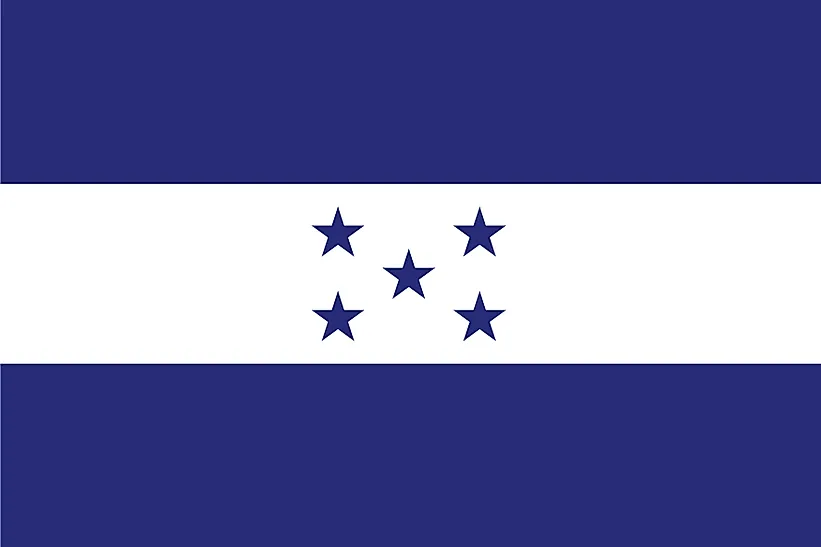
Honduras
| Continent | Americas |
| Capital | Tegucigalpa |
| Population | 8,893,259 |
| GDP | $43.19 Billion |
| GDP per Capita | $5,300 |
| Dialing Code | +504 |
| ISO Code (2-letter) | HN |
| ISO Code (3-letter) | HND |
Honduras Landscapes






About Honduras
Welcome to Honduras, a nation where ancient Maya civilization meets Caribbean beauty in the heart of Central America. With approximately 9.9 million people occupying 112,492 square kilometers, Honduras combines rich archaeological heritage with remarkable biodiversity, earning its reputation for natural and cultural treasures.
Geographic Features and Natural Beauty
Honduras’s geography encompasses diverse landscapes, from Caribbean and Pacific coasts through mountain ranges to tropical rainforests. The country features the Mesoamerican Barrier Reef System, the second-largest coral reef in the world, along its Caribbean coast.
The landscape includes the Mosquito Coast’s extensive wetlands, the pine forests of the interior mountains, and the Bay Islands, famous for their marine biodiversity. The Río Plátano Biosphere Reserve, a UNESCO World Heritage site, preserves pristine rainforest and indigenous cultures.
Protected areas include Pico Bonito National Park, with its dramatic mountains and diverse ecosystems, and Cusuco National Park, known for its cloud forests and endemic species. The country’s varied climate zones support remarkable biodiversity, including numerous endangered species.
Cultural Heritage and Traditions
Honduran culture reflects influences from indigenous peoples, particularly the Maya, alongside Spanish colonial heritage. The country’s cultural mosaic includes various ethnic groups, including the Garifuna people, whose culture is recognized by UNESCO as Intangible Cultural Heritage.
Traditional arts include pottery making, particularly the distinctive Lenca pottery, and textile weaving. Music and dance traditions blend indigenous, African, and European influences, with punta music and dance being particularly significant among the Garifuna.
Honduran cuisine features traditional dishes like baleadas, pupusas, and various seafood preparations. The country’s coffee culture, centered in the mountainous regions, produces some of Central America’s finest beans.
Historical Journey
Honduras’s history spans from ancient Maya civilization, particularly at Copán, through Spanish colonization to independence in 1821. The ancient city of Copán represents one of the most significant Maya archaeological sites, demonstrating advanced architectural and astronomical knowledge.
Post-independence years saw various political and economic developments, while recent decades have focused on democratic consolidation and economic diversification. The country’s role in ancient Mesoamerican trade networks continues to influence archaeological understanding.
Modern Economic Landscape
Today’s Honduran economy combines traditional strengths in agriculture, particularly coffee and bananas, with growing sectors like textiles and tourism. The country’s strategic location and young workforce support its development potential.
Recent initiatives focus on infrastructure improvement, tourism development, and agricultural modernization. The country’s emerging technology sector and special economic zones aim to diversify the economy.
International Relations and Global Position
Honduras maintains active participation in Central American integration efforts and broader international organizations. The country’s position between two oceans makes it an important partner in regional trade and security.
Did You Know?
• The ancient Maya city of Copán features some of the most elaborate sculptures in the Maya world?
• Honduras hosts part of the Mesoamerican Barrier Reef, the second-largest coral reef system globally?
• The country was once known as the “Banana Republic” due to its significant banana exports?
• The Río Plátano Biosphere Reserve contains uncontacted indigenous peoples?
Conclusion
Honduras represents a fascinating blend of ancient heritage and natural wonders in Central America. From its coral reefs to its cloud forests, from its Maya ruins to its vibrant modern culture, Honduras continues to evolve while preserving its unique identity. As it addresses challenges including environmental protection and economic development, Honduras remains committed to sustainable growth while maintaining its position as a cultural and natural treasure of Central America.